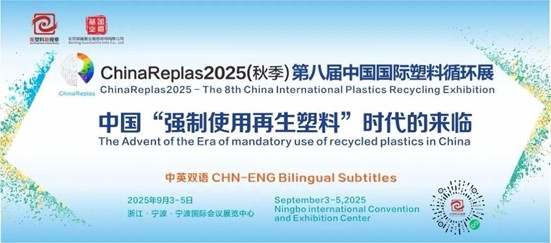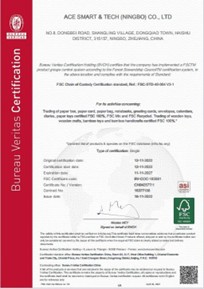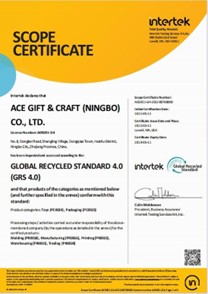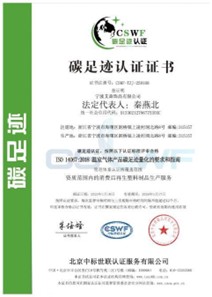WRITER: Damon Li
According to local media reports, the 32nd China International Plastic Recycling Conference was held in Ningbo, Zhejiang Province on September 2, 2025. Embrace the Era of “ Mandatory Use of Recycled Plastics” In China with “Resilience, Countering Innovation, and Technological Breakthroughs”

As the founder of ACE Group, Mr. Qin Yanbei began planning and implementing the Group’s sustainable development strategy in December 2020. Leveraging his years of industry experience and keen business acumen, he formulated a 5-year sustainable development strategy. The overall plan covers five major areas, including the PCR (Post-Consumer Recycled Plastic) Plan, Carbon Footprint, Bio-based Materials, Green Energy Plan, and Zero-Carbon Plan.
The general guiding principle of the plan adheres to the ESG “triple bottom line” principle, which is the 3P principle of Product, Planet, and People. Mr. Qin Yanbei introduced his sustainable development strategy framework as follows:
- Fully consider and implement the consistency and compatibility between products and the sustainable development strategy. More specifically, we have enhanced the attributes, commercial value, and environmental benefits of traditional products through new materials. Our extensive experience and advanced technology are fully integrated into products, enabling delivery, interaction, and communication with customers. Mr. Qin Yanbei also stated:
- In addition to providing more environmentally friendly product solutions, we spare no effort to promote energy-saving, emission-reduction, green, and efficient production facilities and processes. Green energy equipment is utilized to the maximum extent in the daily operations and production links of the enterprise. Examples include carbon capture technology, water circulation technology, carbon sequestration technology, green energy equipment, and green transportation energy.
- Qin Yanbei said: “Employees are our important assets. We provide employees with sustainable development opportunities and a journey to grow together with the company; suppliers are a group with a shared future that we particularly cherish. We are willing to share our knowledge and experience in sustainable development, empower industry partners, and jointly build and maintain a sustainable business ecosystem.”
Centering on the triple sustainable development framework of Product, Planet, and People, Mr. Qin Yanbei has led the enterprise to achieve numerous accomplishments over the past 5 years.
Part 1: Post-Consumer Recycled (PCR) Plastic and Ocean-Bound Plastic (OBP)
In December 2020, the company established a PCR Engineering Section within its R&D center, dedicated to researching the properties of relevant raw materials and production processes. He also organized and set up the Group’s Sustainable Development Department, taking the lead himself. He spearheaded the formulation of plans and organized the implementation of software and hardware upgrades as well as production process improvements within the Group. The main content of the PCR Plan is to increase the R&D efforts and application scope of PCR materials over the next 5 years, with the goal of covering 8 of the company’s brands and 4 major product categories with PCR materials, including office and home improvement products, holiday and party products, toys and games, and outdoor solar lighting.
After more than ten months of R&D and material testing, the company has visited dozens of upstream raw material suppliers and actively participated in over 20 online and offline forums and conferences organized by industry associations. These events covered topics such as the recycling and reuse of plastic materials, the application of post-consumer plastics in finished products, and the modification and injection molding of special materials.
Currently, the company has completed the R&D of 8 types of plastic products, switching from 100% virgin materials to 100% recycled materials. This includes the planning and achievement of raw material properties, mold testing and trial production, laboratory testing, and delivery to customers. The types of plastics involved are PCR PP, PCR ABS, PCR PA6, PCR PET, PCR LLDPE, PCR PE, PCR PC, and PCR PS (a total of 8 types). Additionally, the company has applied Ocean-Bound Plastic (OBP) in the R&D of home products.


Part 2: Carbon Footprint and System Certification
Mr. Qin Yanbei led the team to cooperate with well-known European companies, uploading and recording in real-time the quantity and type of recycled materials used in the production and manufacturing process, as well as the type and data of new energy used in enterprise operations, production, manufacturing, and logistics transportation through the MALBAR system.
In terms of certification systems, Mr. Qin Yanbei led the enterprise to obtain the Global Recycled Standard (GRS) in May 2022, which is recognized as the most authoritative certification for sustainable entities worldwide. He also led the team to obtain the Forest Stewardship Council (FSC) certification in 2022


Part 3: Bio-based Plastic Plan
Mr. Qin Yanbei led the team to achieve a major breakthrough in the field of bio-based materials. Starting from 2020, a special R&D team was established to conduct scientific research on the organic combination of bio-based substances and plastics from both theoretical and practical perspectives. This resulted in high-molecular bio-based plastic pellets, which were applied in the injection molding production of finished products. The proportion of bio-based raw materials in the bio-based materials reached 48%, far exceeding the level of developed countries in Europe and America. The R&D achievement obtained the OK biobased certification issued by the authoritative organization TUV AUSTRIA.
Mr. Qin Yanbei’s environmental protection concept for bio-based products is a more advanced concept following degradable PLA and recyclable PCR, which is called “carbon storage” in the industry. Regarding lignin, the most difficult-to-handle component in biomass fibers, Mr. Qin Yanbei ingeniously chose to store it and turn waste into treasure. This approach not only does not produce greenhouse gases such as carbon dioxide but also does not consume soil fertility. Instead, lignin is reorganized, combined with plastic, and applied in the production of finished products.
Part 4: Green Energy Plan
Over the past 5 years, Mr. Qin Yanbei’s team has used a total of 500 tons of post-consumer recycled plastic, directly reducing greenhouse gas emissions such as carbon dioxide by 833 tons. The enterprise has used a total of 3.75 million kilowatt-hours of green energy, reducing carbon dioxide emissions by 3,295 tons.
As part of the Green Energy Plan, the company’s grid-connected solar power generation units produce 750,000 kilowatt-hours of green electricity annually, accounting for 50% of the total electricity used in production. Green electricity is used in multiple production links and the company’s daily operations. In the future, the Group plans to continue investing in the construction of solar power generation equipment in the factory areas of 4 other manufacturing subsidiaries. It will increase investment in green energy infrastructure construction, widely apply green energy in production, manufacturing, and organizational operations, significantly reduce the enterprise’s demand for external carbon offsets from the energy side, and provide strong support for zero-carbon products and even zero-carbon organizations.
Part 5: Zero-Carbon Plan
Mr. Qin Yanbei said: “The company has achieved remarkable results in sustainable development over the past few years, but I still look forward to and strive to achieve a greater breakthrough – the Zero-Carbon Plan.” First, the company actively learns and masters information related to domestic and international carbon emission rights trading, carbon prices, and carbon accounting. It establishes and improves the statistics, calculation, analysis, and archiving of carbon efficiency in the enterprise’s production and processing processes. Second, it actively learns about and participates in domestic carbon trading activities. Third, the company plans to launch its first zero-carbon product in 2023, achieve business carbon neutrality in 2025, and reach technical carbon neutrality in 2040.
The market and customers have highly recognized Mr. Qin Yanbei and the enterprise he leads for their outstanding contributions to sustainable development, and have shown a highly favorable attitude towards cooperation.
In 2021, the enterprise launched cooperation with HAY, a world-renowned high-end home and furniture enterprise. HAY is a Danish furniture and home design brand company, owning several internationally renowned brands such as HAY and & Tradition. Currently, the cooperative product series between HAY and Mr. Qin Yanbei includes HAY COLOUR CRATE, FACET TROLLEY, and OYOY STOOL. All product lines are made of 100% recycled plastic and produced using 100% green energy.

In addition to Europe, Mr. Qin Yanbei’s sustainable development plan has also been highly recognized in the U.S. market. In 2022, Heller Furniture (U.S.) launched cooperation with Mr. Qin Yanbei’s team, covering products in various fields such as furniture, interior decoration, high-end storage, and tableware. In terms of product materials and production energy, Mr. Qin Yanbei still chose the most environmentally friendly options: 100% post-consumer recycled plastic and green energy.
ACE Group’s sustainable development strategy and green low-carbon economic model are comprehensive and multi-dimensional. It ensures the correctness of the strategic direction from the information side, guarantees that products inherently possess low-carbon and environmentally friendly attributes from the raw material side, optimizes and improves carbon efficiency from the technology side, significantly reduces the enterprise’s demand for external carbon offsets from the energy side to provide strong support for zero-carbon products and even zero-carbon organizations, and seeks commercial carbon offsets from domestic and international carbon markets when necessary.
It is hoped that the company’s sustainable development strategy will enable it to gain a relative advantage in the new plastic economy. At the same time, low-carbon environmental protection and green economy are actions that benefit humanity. Most importantly, it is to contribute a modest effort to the country’s “30·60” dual carbon goal (peaking carbon dioxide emissions by 2030 and achieving carbon neutrality by 2060).
Media Contact:
Michelle Shen


